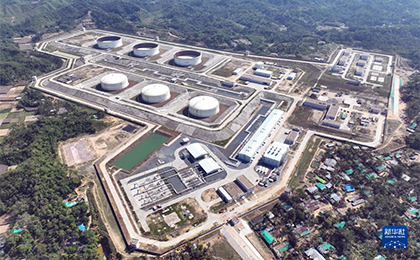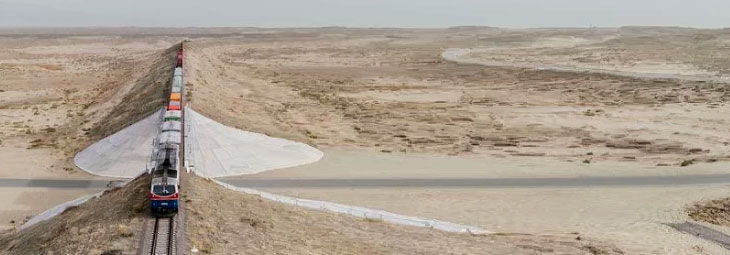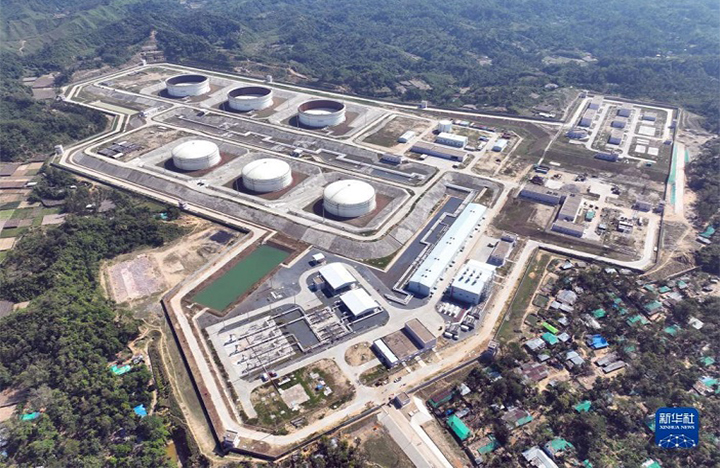



Photographed on November 10th, the Single Point Mooring and Double Pipeline System Project Site in Moheshkhali, Bangladesh.
In the eastern inlet of Chittagong, Bangladesh, at the entrance to the Bay of Bengal,members of a Chinese engineering team, clad in red overalls, are diligently and systematically working alongside local laborers. They are collaboratively engaged in the construction of Bangladesh's first large-scale integrated sea-land petroleum storage and transportation project.
Historically, Bangladesh has heavily relied on imports for its petroleum and petroleum products, which are transported by tankers to the port of Chittagong from abroad. However, due to limitations in port water depth, tankers with a capacity of 100,000 tons can only anchor outside the port, necessitating a relay transport to the port through smaller vessels. This unloading method is inefficient, costly, and poses environmental pollution risks.
In early 2019, construction commenced on the Single Point Mooring (SPM) and Double Pipeline System project, funded by preferential loans from the Chinese government, financing from the China Export-Import Bank, and undertaken by China Petroleum Pipeline Engineering Co., Ltd. As Bangladesh's first large-scale integrated sea-land petroleum storage and transportation project, the scope includes the construction of a single-point mooring system, tank areas, terminals, and the installation of a 220-kilometer-long offshore and onshore oil pipeline.
However, the project faced challenges in its execution. To address technical difficulties, the project team engaged in multiple rounds of design, demonstration, and testing. They successfully implemented two world-leading construction schemes: "sea-land directional drilling" and "deep trenching after crossing the sea channel." Additionally, the project utilized a previously unused domestic technology for the offshore "dual-channel single-point mooring system" installation.
"The project has achieved a 'full industry chain' with Chinese funding, technology, equipment, and construction," proudly stated project manager Sun Bijun.
Representing the supervisory side, Brent Demirdamar commented that due to factors such as monsoon rains and seawater environment, the project was highly challenging. However, Chinese enterprises consistently demonstrated efficient problem-solving capabilities.
It is reported that the project is now ready for operation and, once operational, will significantly alleviate Bangladesh's energy shortage, becoming the country's new energy artery and estimated to save $128 million in crude oil transportation costs annually.
During the construction process, the project also provided substantial employment opportunities for the local population. According to statistics, the project created nearly 4,000 job positions for Bangladesh, with 85% of the employees being locals.
Suman, a Bangladeshi employee who had studied in China and later joined the project after graduation, expressed great satisfaction with his experience. "I've learned many skills that I had never encountered before. Working here is very valuable and will be helpful for my future development."
Source: < https://www.yidaiyilu.gov.cn/p/0CQUD46G.html>
Translated by Li Wei